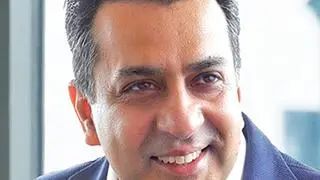Have a great idea to develop an IT, telecom product or solution that you think could make waves? Confident that you can sell your product or solution story to angel and private equity investors?
Hold on, it's not easy, caution investment firms.
Factor in this information: Only one in 150 or 200 ideas convinces these firms — that's how hard it is to reach out to the angel or PE investors and make them believe that your product or solution could be turned into a viable business proposition.
Hyderabad Angels, an investment interest group comprising high net worth individuals and investment firms, shows how unprepared entrepreneur wannabes are about translating their dream ideas into reality.
“We give them a basic questionnaire that would have some points related to their business plans. A good number of them do not return the questionnaire. Instead, they come out with another ‘idea',” J A Chowdhary, Chairman of The Indus Entrepreneurs (TiE-Andhra Pradesh), TalentSprint (HR development firm) and member of Hyderabad Angels, told a crowd of budding entrepreneurs at the Advantage Andhra Pradesh meet held recently.
Hyderabad Angels, which is open to all sectors, generally invests up to $20 million for a span of three-five years.
He says investment firms should not just look at pumping in money and making profits. They should act as mentors and help first- generation entrepreneurs to develop a strategy.
T.C. Meenakshi Sundaram, founder and Managing Director of IDG Ventures India, lists an investor's expectations before investing in an early stage project.
“Don't think venture capital funds and other investors are into infusing money into your projects. The projects should be able to scale up quickly and bring in market culture,” he says.
At a recent meeting of IT Industry of Andhra Pradesh (ITsAP), investment firms, which include those started by some former IT entrepreneurs, spoke on how to build an investment ecosystem for IT and technology start-ups, with a do's and don'ts list.
11 out of 3,500
Meenakshi Sundaram says his company had to scrutinise 3,500 proposals to zero in on 11. “It is not an easy task to convince an investor,” he cautions.
Ananth Rao, who set up an Indian development centre for his Dallas-based JP Mobile as early as 1996, says early stage investors take into account how significant the idea presented by those who seek funds is, and what the differentiator is.
You know, it is not so much of a science to assess the value of a project. “We see how much money and effort it would require if someone has to start from scratch. We assess how strong the team put in place to execute the plan is,” he observes.
Rao himself sold his company to Good Tech, which in turn was acquired by Motorola in 2007.
He is founder and Managing Director of Focus Ventures that invests in early-stage technologies.
Social development
Vishal Vasisth, founder and Managing Director of Song Investment, says there is a great opportunity for ideas that could light up lives and improve the quality of life in emerging economies such as India.
“US-centric companies generally do not look at emerging markets. These markets need different ideas,” he points out.
His company invests in areas that are important for social development.
“There are under-served sectors such as health, education, infrastructure, agriculture and financial inclusion. Any ideas in these sectors throw up immense opportunities,” he says.
While Meenakshi Sundaram says a dream for achieving big numbers would be liked by investors, Amit Kishore, Chief Executive Officer of the GPS navigation products company SatNav, cautions that some investors do not believe in ‘ambitious' numbers.
“Be frank with your investors. Tell them what exactly you are aiming at. Just focus on the target,” he advises.








Comments
Comments have to be in English, and in full sentences. They cannot be abusive or personal. Please abide by our community guidelines for posting your comments.
We have migrated to a new commenting platform. If you are already a registered user of TheHindu Businessline and logged in, you may continue to engage with our articles. If you do not have an account please register and login to post comments. Users can access their older comments by logging into their accounts on Vuukle.